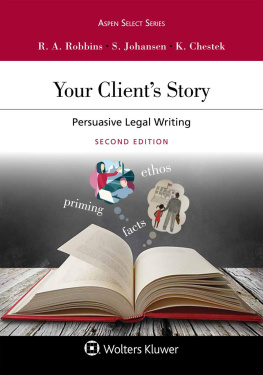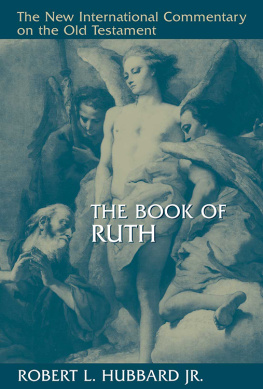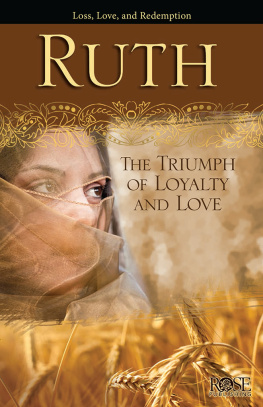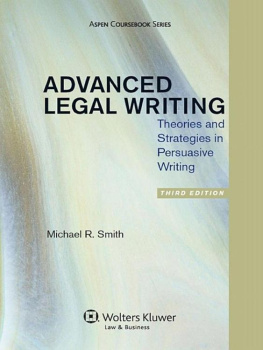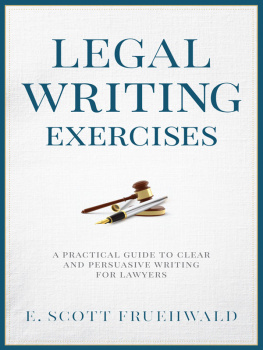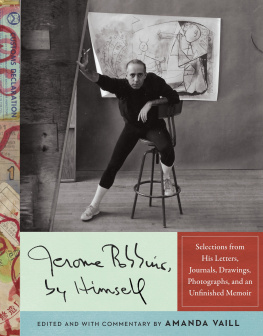Ruth Anne Robbins - Your Clients Story: Persuasive Legal Writing
Here you can read online Ruth Anne Robbins - Your Clients Story: Persuasive Legal Writing full text of the book (entire story) in english for free. Download pdf and epub, get meaning, cover and reviews about this ebook. year: 2018, publisher: Wolters Kluwer, genre: Romance novel. Description of the work, (preface) as well as reviews are available. Best literature library LitArk.com created for fans of good reading and offers a wide selection of genres:
Romance novel
Science fiction
Adventure
Detective
Science
History
Home and family
Prose
Art
Politics
Computer
Non-fiction
Religion
Business
Children
Humor
Choose a favorite category and find really read worthwhile books. Enjoy immersion in the world of imagination, feel the emotions of the characters or learn something new for yourself, make an fascinating discovery.
- Book:Your Clients Story: Persuasive Legal Writing
- Author:
- Publisher:Wolters Kluwer
- Genre:
- Year:2018
- Rating:3 / 5
- Favourites:Add to favourites
- Your mark:
- 60
- 1
- 2
- 3
- 4
- 5
Your Clients Story: Persuasive Legal Writing: summary, description and annotation
We offer to read an annotation, description, summary or preface (depends on what the author of the book "Your Clients Story: Persuasive Legal Writing" wrote himself). If you haven't found the necessary information about the book — write in the comments, we will try to find it.
Your Clients Story: Persuasive Legal Writing — read online for free the complete book (whole text) full work
Below is the text of the book, divided by pages. System saving the place of the last page read, allows you to conveniently read the book "Your Clients Story: Persuasive Legal Writing" online for free, without having to search again every time where you left off. Put a bookmark, and you can go to the page where you finished reading at any time.
Font size:
Interval:
Bookmark:
Your Clients Story
EDITORIAL ADVISORS
Rachel E. Barkow
Segal Family Professor of Regulatory Law and Policy
Faculty Director, Center on the Administration of Criminal Law
New York University School of Law
Erwin Chemerinsky
Dean and Jesse H. Choper Distinguished Professor of Law
University of California, Berkeley School of Law
Richard A. Epstein
Laurence A. Tisch Professor of Law
New York University School of Law
Peter and Kirsten Bedford Senior Fellow
The Hoover Institution
Senior Lecturer in Law
The University of Chicago
Ronald J. Gilson
Charles J. Meyers Professor of Law and Business
Stanford University
Marc and Eva Stern Professor of Law and Business
Columbia Law School
James E. Krier
Earl Warren DeLano Professor of Law
The University of Michigan Law School
Tracey L. Meares
Walton Hale Hamilton Professor of Law
Director, The Justice Collaboratory
Yale Law School
Richard K. Neumann, Jr.
Alexander Bickel Professor of Law
Maurice A. Deane School of Law at Hofstra University
Robert H. Sitkoff
John L. Gray Professor of Law
Harvard Law School
David Alan Sklansky
Stanley Morrison Professor of Law
Faculty Co-Director, Stanford Criminal Justice Center
Stanford Law School
ASPEN SELECT SERIES
Your Clients Story:
Persuasive Legal
Writing
Second Edition
Ruth Anne Robbins
Distinguished Clinical Professor of Law
Rutgers Law School
Steve Johansen
Director of Lawyering
Professor of Law
Lewis & Clark Law School
Ken Chestek
Director, Externship Program
Assistant Director, Center for the Study of Written Advocacy
Professor of Law
University of Wyoming College of Law

Copyright 2019 CCH Incorporated. All Rights Reserved.
Published by Wolters Kluwer in New York.
Wolters Kluwer Legal & Regulatory U.S. serves customers worldwide with CCH, Aspen Publishers, and Kluwer Law International products. (www.WKLegaledu.com)
No part of this publication may be reproduced or transmitted in any form or by any means, electronic or mechanical, including photocopy, recording, or utilized by any information storage or retrieval system, without written permission from the publisher. For information about permissions or to request permissions online, visit us at www.WKLegaledu.com, or a written request may be faxed to our permissions department at 212-771-0803.
To contact Customer Service, e-mail
call 1-800-234-1660,
fax 1-800-901-9075, or mail correspondence to:
Wolters Kluwer Attn: Order Department PO Box 990 Frederick, MD 21705Library of Congress Cataloging-in-Publication Data
Names: Robbins, Ruth Anne, author. | Johansen, Steve, author. | Chestek, Ken, author.
Title: Your client's story : persuasive legal writing / Ruth Anne Robbins, Distinguished Clinical Professor of Law, Rutgers Law School; Steve Johansen, Director of Lawyering, Professor of Law, Lewis & Clark Law School; Ken Chestek, Assistant Director, Legal Writing Program, Assistant Director, Center for the Study of Written Advocacy, Associate Professor of Law, University of Wyoming College of Law.
Description: 2nd edition. | New York : Wolters Kluwer, [2019] | Series: Aspen--Select Series | Includes index.
Identifiers: LCCN 2018041459 | eISBN: 978-1-5438-0540-6
Subjects: LCSH: Legal composition. | Law--United States--Language. | Law--United States--Methodology. | LCGFT: Textbooks.
Classification: LCC KF250 .R625 2019 | DDC 808.06/634--dc23
LC record available at https://lccn.loc.gov/2018041459
About Wolters Kluwer Legal & Regulatory U.S.
Wolters Kluwer Legal & Regulatory U.S. delivers expert content and solutions in the areas of law, corporate compliance, health compliance, reimbursement, and legal education. Its practical solutions help customers successfully navigate the demands of a changing environment to drive their daily activities, enhance decision quality and inspire confident outcomes
Serving customers worldwide, its legal and regulatory portfolio includes products under the Aspen Publishers, CCH Incorporated, Kluwer Law International, ftwilliam.com and MediRegs names. They are regarded as exceptional and trusted resources for general legal and practice-specific knowledge, compliance and risk management, dynamic workflow solutions, and expert commentary.
Ruth Anne Robbins dedicates this book to her husband and daughters, who shared the writing journey with her: Steve, Shelby, and Gwen.
Steve Johansen dedicates this book to Lenore Honey Johansen. You are the hero of our story.
Ken Chestek dedicates this book to Robin Chestek, whose unfailing support and encouragement made this project possible. FFLA.
Summary of Contents
Contents
Acknowledgments
There are many people whom we need to thank, but the first are the three lawyers who wrote the appendices of this book while they were still in law school. They are Andrew Norcott Dodemaide (Rutgers Law School), William F. Hanna (Rutgers Law School), and Naima Solomon (Indiana University McKinney School of Law).
Others who contributed, materially or influentially, to this second edition include Toni Berres-Paul (Lewis & Clark), Victoria L. Chase (Rutgers), Brian J. Foley, Esq., Blair Gerold, Esq.,the Rocky Mountain Legal Writing Scholarship Group, and of course, Michael R. Smith (Wyoming).
There were many other people who provided immeasurable assistance, either by asking students to read early chapters or by supporting our work on the book. Those people include Sarah Adams (Arkansas), Bill Chin (Lewis & Clark), Jason K. Cohen (Arizona State), Alison Julien (Marquette), Derek Kiernan-Johnson (ColoradoBoulder), Allison Martin (Indiana University McKinney), Tracy McGaugh (Touro), Debby McGregor (Indiana University McKinney), Anne Villella (Lewis & Clark), Carol Wallinger (Rutgers), and Daryl Wilson (Lewis & Clark).
Like all books, this one has been many years, many consumed Moonstruck chocolates, and many stories in the making. This book is also the result of several years spent studying and discussing Applied Legal Storytelling, and we thank the Legal Writing Institute and all of the people who have been involved with the conferences that brought us together. We are especially indebted to our U.K. colleagues Robert McPeake (City University, London) and Erika Rackley (Durham), and their efforts to bring Applied Legal Storytelling to an international audience. We also are indebted to those who have provided us feedback on our background articlesso many people in legal writing have provided us support and encouragement that we cannot hope to thank them all individually.
Finally, to our students over the years, we thank you for giving us the opportunity to teach persuasive legal writing in this manner and to learn from you as well.
Prologue
Topeka, Kansas, 1950. World War II had ended five years ago. The country was turning to happier times. The Baby Boom was underway. Factories were turning out cars and refrigerators and a new device called a television. Prosperity reigned.
But not everyone was pleased with the status quo of 1950.
In September 1950, Linda Brown, an eight-year-old African-American child who lived in Topeka, Kansas, was ready to begin the third grade. Her first years of education had been spent at Monroe, an all-black school located about twenty-one blocks from the Brown home. In a modest neighborhood, the Monroe school building had been constructed in 1926. It was of brick in the Italian Renaissance style, well-cared for and a credit to the community where it was located. The Browns home was in a racially mixed neighborhood. The children of white and other nonblack families of the neighborhood attended Sumner School about seven blocks from the Brown residence. Named for abolitionist leader Charles Sumner, the first school on the Sumner site was initially for blacks only, but in 1885 it was designated for white students. The current building at Sumner was built in 1935. It was constructed of light-colored brick with a good deal of ornamentation. The testimony of the expert witness was that the Sumner classrooms were more spacious and the facilities more ample and in keeping with a good school situation. The academic programs at Monroe and Sumner were comparable. Bus transportation was provided for Linda and other Monroe students along a designated route. Linda boarded the bus at a pick-up station about seven blocks from her home. There was no shelter for waiting passengers, and to reach the pick-up station Linda and other black students had to walk through a railroad switchyard and cross Kansas Avenue, Topekas main commercial street, where the motor traffic was heavy. No such hazards were encountered by students walking to Sumner. As the 195051 school term was about to begin Oliver Brown, Lindas father, was concerned about his daughters safety and comfort, the inconvenience of her daily trip to and from Monroe School, and the quality of the educational opportunity afforded her by the Topeka school district. On the day appointed for her enrollment he led Linda to Sumner, the neighborhood school, and requested that she be admitted. The request was denied solely because the child was black and the rules of the board of education limited attendance at Sumner School to white, or approximately white, children. Linda continued to attend Monroe, but the events of that September morning commenced a series of happenings from which Linda Brown emerged as a celebrity and a folk heroine of the civil rights movement.Next pageFont size:
Interval:
Bookmark:
Similar books «Your Clients Story: Persuasive Legal Writing»
Look at similar books to Your Clients Story: Persuasive Legal Writing. We have selected literature similar in name and meaning in the hope of providing readers with more options to find new, interesting, not yet read works.
Discussion, reviews of the book Your Clients Story: Persuasive Legal Writing and just readers' own opinions. Leave your comments, write what you think about the work, its meaning or the main characters. Specify what exactly you liked and what you didn't like, and why you think so.

